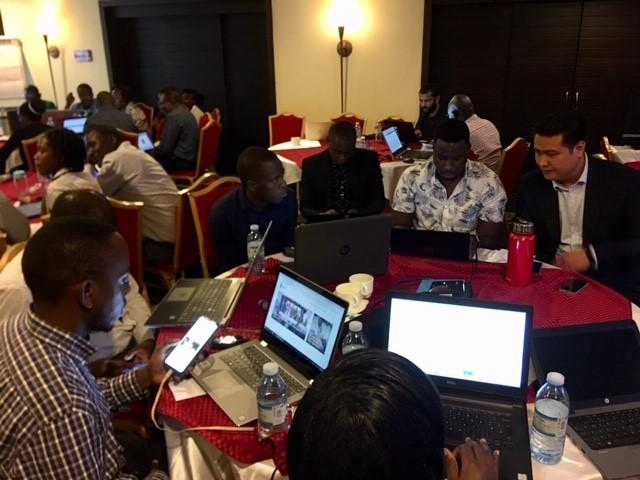
Success Story: Integrated Health Security and Disease-Specific Planning in Uganda
July 31, 2019
African Region
Uganda
Entebbe, Uganda
The WHO Strategic Partnership for IHR and Health Security (SPH) in December 2018 convened, along with influenza colleagues, the Global Technical Consultation on Strengthening National Health Security through Pandemic Influenza Preparedness Planning .Uganda requested at the close of the consultation to be among the countries to pilot a tailored package of WHO support for strengthening health security and disease-specific planning.
The resulting 31 July- August 2, 2019 workshop in Entebbe, Uganda, included WHO support in developing a draft Pandemic Influenza Preparedness Plan (PIPP) and a National Deployment and Vaccination Plan (NDVP) for Uganda, as well as updating the country’s Ebola Virus Disease (EVD) plan. The workshop participants used the resource mapping tool developed by WHO SPH to link the activities in the pandemic influenza, vaccine deployment and Ebola preparedness plans with the country’s all-hazard National Action Plan for Health Security (NAPHS).
The linkage of NAPHS with Uganda’s pandemic influenza, vaccine deployment and Ebola preparedness plans increases efficiency and facilitates effective mobilization of resources, allowing disease-specific resources to be leveraged for NAPHS implementation and strengthening of Uganda’s health system. The goal in Uganda was to harness the country’s incoming Ebola preparedness and response investments for health security capacity buildingby linking Ebola activities to the NAPHS, ultimately leading to long term development of health systems. One-time funding for Ebola response, for example, can be leveraged through NAPHS for establishment of rapid response teams with long-term and sustainable capabilities to respond to Ebola as well as pandemic influenza and other health emergencies.
Linking Ebola and pandemic influenza preparedness activities with the 5-year NAPHS is a functional example of capturing specific emergency investment for development of a health system. Reversing the usual scenario of emergencies weakening health systems, the linkage can harness emergencies to strengthen health systems through targeted and integrated interventions that serve to build capacities for multiple risks at the same time and are woven into and sustained in the health system through NAPHS.
The workshop identified more than a dozen “Super Actions” that can simultaneously improve preparedness for Ebola, pandemic influenza and broader health emergencies through implementation of the NAPHS. The Super Actions were identified through close collaboration between the Uganda Ministry of Health, WHO, and the U.S. Centers for Disease Control and Prevention, working in partnership to advance preparedness. These Super Actions are now being prioritized for implementation.
Dr Issa Makumbi, Public Health Emergency Operations Centre Director for the Uganda Ministry of Health, called the results of the workshop a great opportunity for Uganda, and a model for leveraging health emergencies for health system strengthening that has the potential to benefit all of Africa.